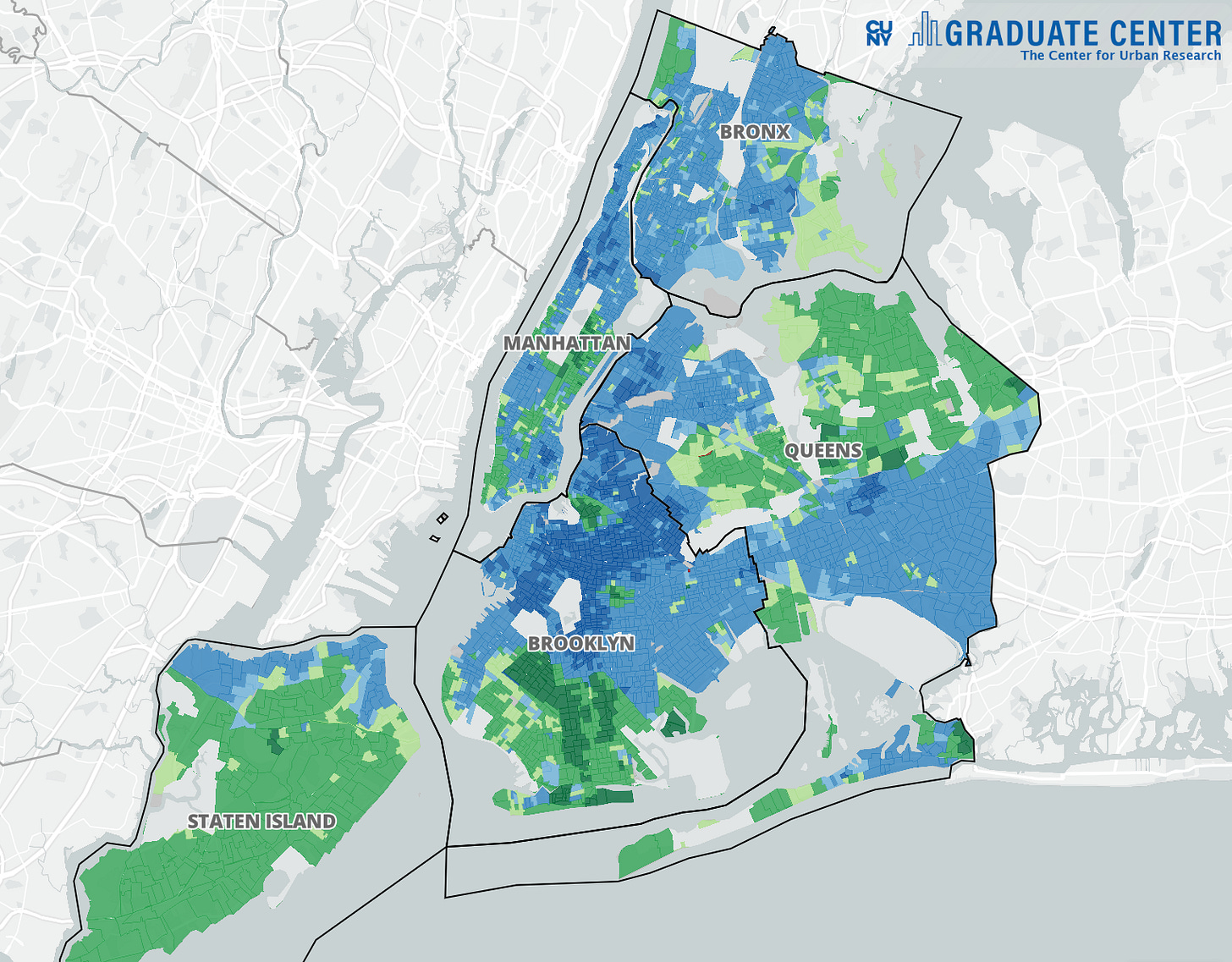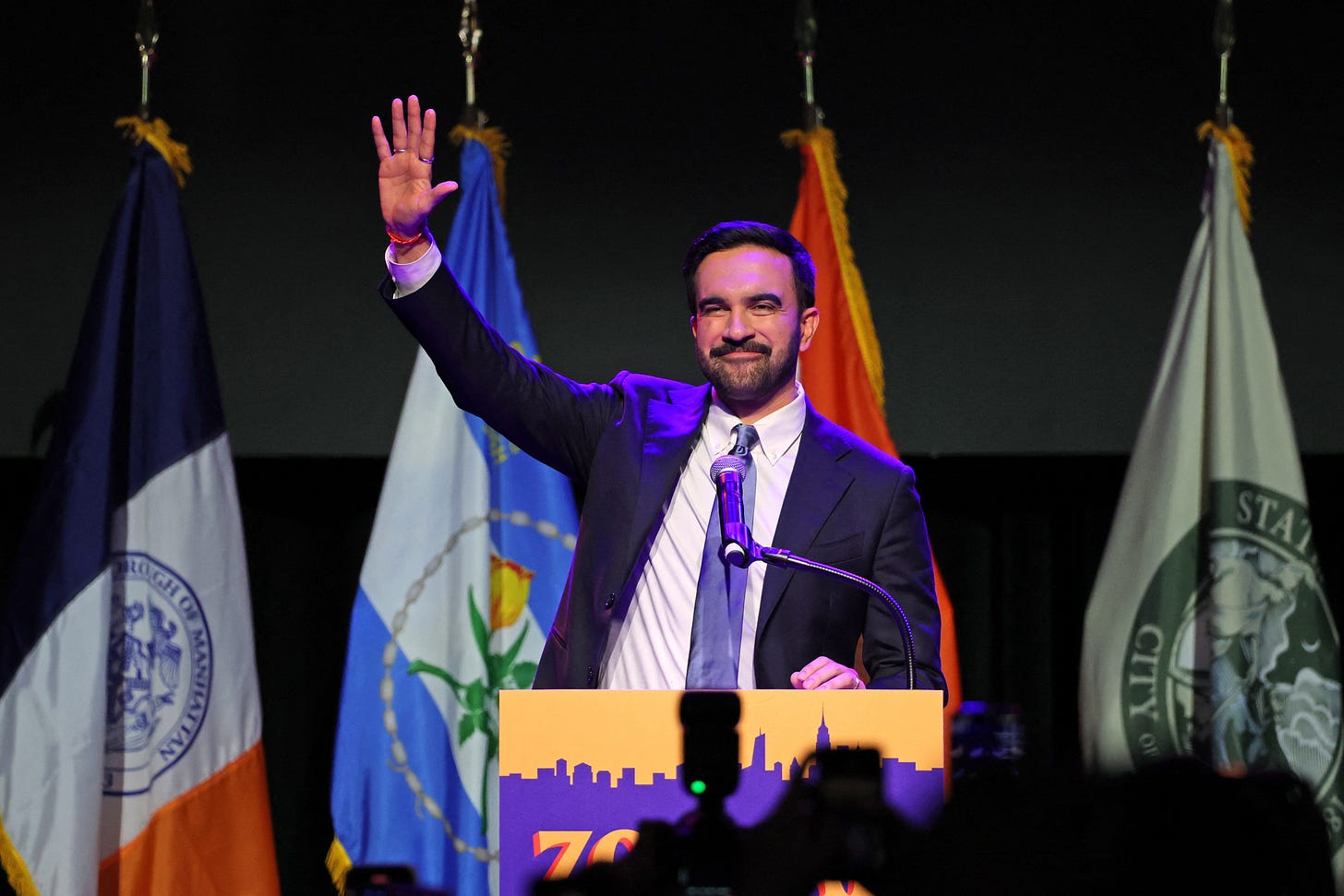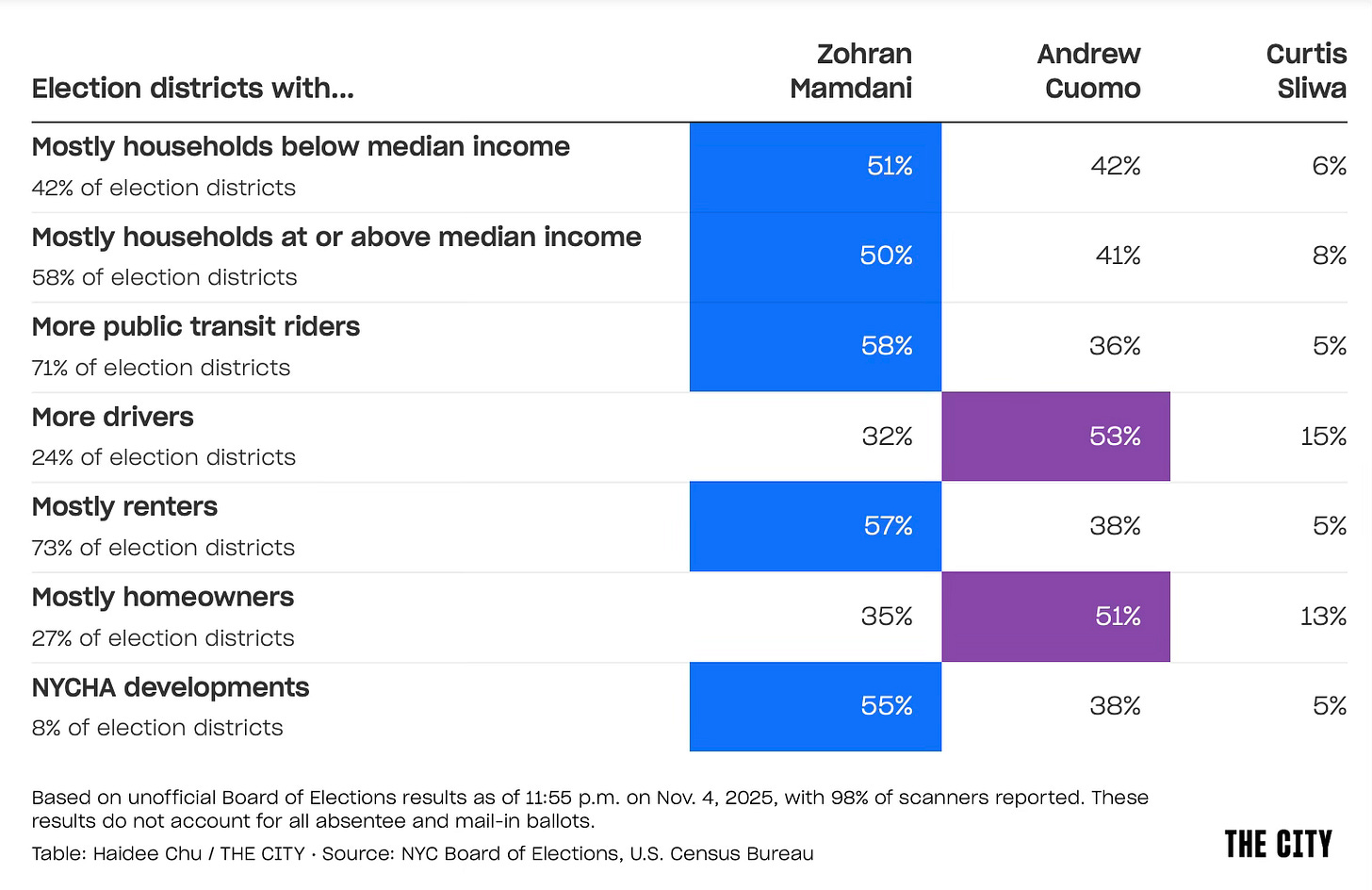The Post-Election Issue: Mamdani And The City
The clock starts on Mayor-elect Mamdani.

New York woke up this week with a socialist mayor-elect and no clear idea what comes next.
Zohran Mamdani’s rise was improbable, helped by the collapse of others as much as the strength of his own machine. But now he inherits a city that spends more than any other, delivers less than it should, and can’t afford new experiments.
This week’s Bigger Apple looks at what Mamdani’s win really means — the limits of his mandate, the myth of “affordability” politics, and how New York’s government actually works.
Reihan Salam On Zohran Mamdani
A year ago, few imagined Zohran Mamdani would become mayor of New York City. His rise owes as much to political accidents—the fall of Eric Adams, hesitation from Tish James, and Andrew Cuomo’s collapse—as to his own appeal, MI President Reihan Salam wrote this week.
“The Mamdani revolution was led by downwardly mobile elites—children of the professional class struggling to make ends meet and entranced by the promises of frozen rent and fare-free buses. They were fired by the same ideas that animated those Albany progressives: that some New Yorkers have been handed the short straw, that soak-the-rich policies can correct these imbalances, and that New York’s private sector was resilient enough to sustain a further ratcheting up of punitive taxation and regulation.”
The Bigger Apple Podcast
Zohran Mamdani, Radical?
“Not exactly, and the question is actually beside the point,” argues Josh Greenman.
Mamdani is wrong to claim the city is rigged against working people, and his critics are wrong to call his platform a socialist revolution, Greenman writes. In reality, New York already runs one of the largest, most expensive public sectors in the country—funding the biggest school and hospital systems, public housing for 400,000 people, rent vouchers, lawyers for tenants, free pre-K, subsidized transit, and a right to shelter.
His ideas—free buses, universal childcare, rent freezes, public grocery stores—mostly build on that system rather than remake it. The question isn’t whether New York spends enough, but whether it spends wisely. His plans would cost billions more, require state approval, and risk driving away the high earners who already fund much of the budget.
“New York’s problem isn’t neglect — it’s performance. The city is generous; it just doesn’t always deliver efficiently or well,” Greenman writes.
The Folly of ‘Affordability’ Politics
“Affordability” has become the buzzword of American politics, both on the right and the left, helping candidates like Mamdani win by promising relief from high living costs. But the new affordability politics risks sliding into economic populism—easy promises of “free” things that don’t actually make life cheaper, Tyler Cowen argues in THE FREE PRESS.
Politicians prefer quick fixes because they sell, however, lasting affordability requires patience, discipline, and policies that make the economy more productive, not more controlled.
How Things Really Get Done
Four former NYC deputy mayors — Meera Joshi, Maria Torres-Springer, Marc Shaw and Stan Brezenoff — have some advice for the next mayor. (Vital City)
FYI: Maria Torres-Springer is now a co-chair of Mamdani’s transition committee, along with Melanie Hartzog, who was a deputy mayor and budget director under de Blasio, Grace Bonilla, the president and CEO of The United Way of New York City who worked for both de Blasio and Mayor Bloomberg, and Lina Khan, who was chair of the Federal Trade Commission from 2021 until this January.
Political strategist and senior adviser to Mamdani’s campaign Elana Leopold, is the Executive Director of transition.
(De)Regulation City
Mamdani spoke to WNYC’s Brigid Bergin [follow-up question regarding Lina Khan]:
Bergin: Do you think that there is a way for the city and through your office, the mayor’s office, to do more to regulate corporations? And maybe even get into more regulation of the crypto industry?
Mamdani: I don’t believe that the Adams administration has set the highest bar for what regulation can look like for taking on corporate greed. And I also have spoken to many-a-small business owner who are at a loss for what they seem to face more regulations than the most profitable companies in the city and in the world.
And it is time to showcase our ability to take on that corporate greed while also streamlining the processes within City Hall so that businesses cannot just open, but stay open. And we will do that through the appointment of a mom-and-pop czar by cutting fines and fees by 50% across the board and by ensuring that we start to streamline some of the processes by which these businesses are receiving their permits and their licenses.
Extra! Extra!
More post-election maps to play with. (THE CITY)
The Census Bureau’s Geography Division now publishes the most detailed and up-to-date housing data ever available. Called the Address Count Listing Files, the dataset—released every six months since 2023—provides near-real-time counts of housing units down to the census block level, drawn from the bureau’s confidential Master Address File. (Niskanen Center)
As Mamdani looks to build free child care, UPK offers lessons on speed vs. stability. Many child care providers remain frustrated by how the program was introduced a decade ago, arguing that it caused disruptions to the system that are still being felt today. (Chalkbeat)
ICE targets NYPD officers with employment ads on social media. (Gothamist)



